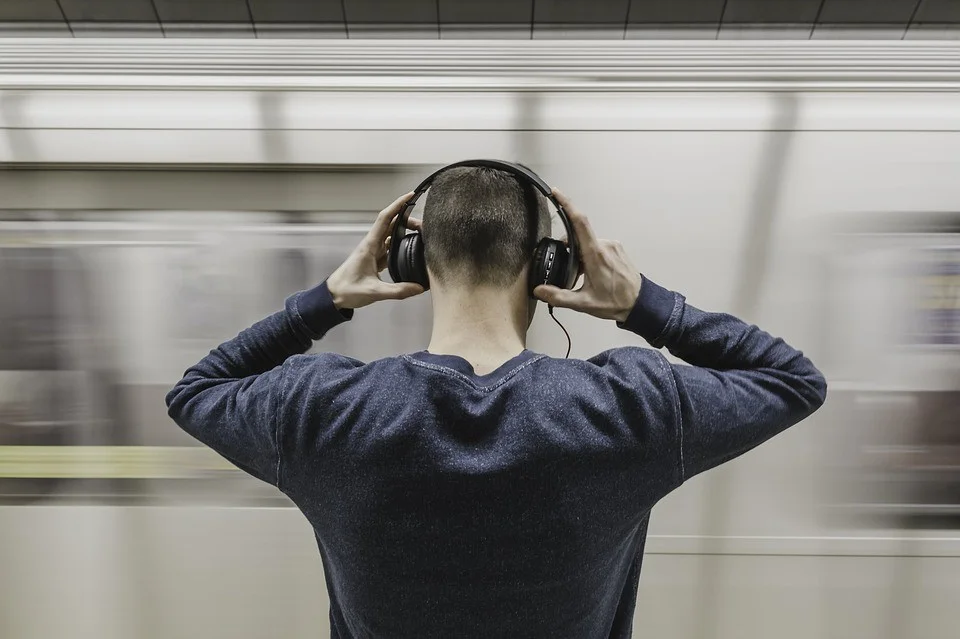Can You Hear Me Now?
Can You Hear Me Now?
Why young adults need to start caring about their hearing health
By Suzanna Miller
Imagine living in a world where you constantly hear a continuous, high-pitched beeping or buzzing sound. It follows you wherever you go, and you can never get rid of it. You can only temporarily mask it with other sounds. The sound prevents you from tuning in to important conversations or even concentrating on a task. It changes your mood, causing you to become irritable and fatigued easily. You hear it when you wake up until you go to sleep.
This is tinnitus- a perception of noise that is often the symptom of an underlying hearing loss. Tinnitus is one of the many potential effects that noise exposure and hearing loss can have on your life.
Hearing loss is not a problem reserved only for the elderly, or those born with it. It is quickly becoming a problem for the average young adult. In fact, over 1 billion of the world’s young adults are affected by noise-induced hearing loss, as reported by the World Health Organization.
The main culprit is our listening habits.
We live in a world where multimedia is available at any moment of the day, and where many of us spend our time plugged into our phones or other personal listening devices. We do not take into account that our ears have a limit as to how long they can take a loud noise before the damage sets in.
How loud is too loud?
Any noise over 85 decibels can cause irreversible damage. That level of noise is comparable to the volume of a running lawn mower. A rock concert can easily reach about 115 decibels in volume. Just a few minutes at your favourite band’s show without ear protection causes irreversible damage to the tiny nerves or hair cells located inside your ear in the cochlea. The main purpose of these hair cells is to pick up a variety of different sounds, and then send those sounds to the brain where they can be understood and enjoyed. With noise exposure, the hair cells are struck by the loud noise, causing them to bend or even break. Once damaged, they cannot be fixed. In the absence of the hair cells that picked up those unique sounds, tinnitus can set in.
Noise induced hearing loss in particular is a dangerous thing, because it is usually gradual, and always permanent. Many young adults are not even aware of the damage that has already been caused, and continue to partake in habits that further damage their hearing: listening to music at top volume in earbuds, attending concerts and other loud events without hearing protection, and partaking in work tasks without adequate hearing protection.
Hearing loss is a sneaky thing: you may not notice it, or maybe even choose to ignore that you can’t hear as well as you could before. The tinnitus you experience after a loud event might even go away after a few days. Over time, however, you may find yourself turning up the volume on your phone to max, and straining to hear people in daily conversations. You might find people straining to hear what you yourself are saying, as you cannot hear your own speech as well. Unaddressed hearing loss and tinnitus can lead to isolation, depression and diminished performance at work. It also has an economic effect: the National Institute on Deafness and Other Communication Disorders (NIDCD) estimates that it costs approximately 1 million dollars in treatment over the lifetime of a person with a hearing impairment or loss.
With this in mind, we need to encourage consideration of three rules for healthy hearing:
- Volume: Turn down the volume by setting your phone or other device to 50% at all times. Invest in better quality headphones to mask outside noise.
- Protection: Protect what you do have by getting your hearing tested. You can do this for free with a doctor’s referral. Invest in musicians’ earplugs that are specially moulded to your ear canal. These earplugs are designed in a way that makes it possible to still carry on a conversation in loud noise environments while somewhat protecting your hearing.
- Advocate and Avoid: Talk to the people in charge in your favourite fitness class or bar, and ask them to turn down the music. You can even download a free decibel meter app on your phone to monitor noise levels to see if they go above the dangerous 85 decibel level. Actively avoiding places where noise is a problem will go a long way in preventing hearing loss and possibly tinnitus.
The natural hearing ability we are born with is what we get in our lifetime.
We must protect it at all costs.
If you are having concerns about your hearing, you can find an audiologist by searching the directories compiled by either Ontario Association of Speech-Language Pathologists and Audiologists (OSLA) or the College of Audiologists and Speech-Language Pathologists of Ontario (CASLPO).
Contact TASC today if you have any concerns about your communication that you feel may be related to your hearing.

